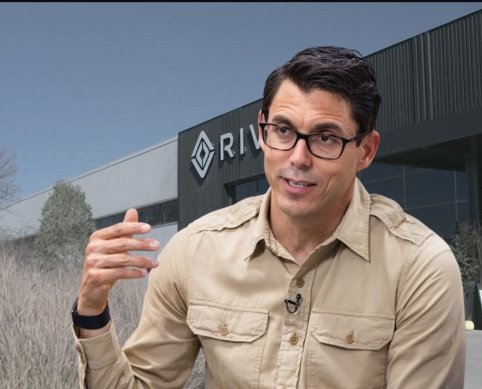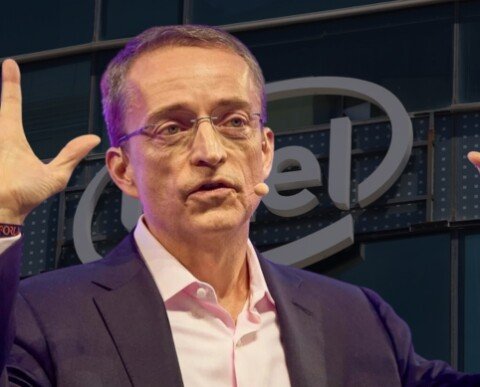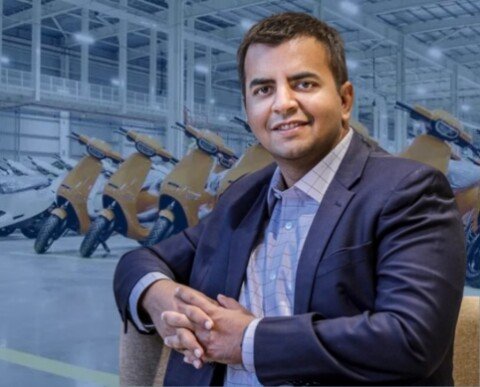When RJ Scaringe launched Rivian in 2009, a year after the Tesla Roadster debuted, he arrived at a crucial realization that would shape the future of the EV startup.
For Rivian to thrive, it needed its own unique identity and investment narrative that set it apart from Elon Musk’s automaker.
“One of the most important things for me with Rivian was ensuring we didn’t follow the same path as Tesla,” he said on the Grit podcast, hosted by venture capital firm Kleiner Perkins, this week.
A passionate car enthusiast who, during his youth, owned a Porsche 928 engine before even getting his driver’s license, Scaringe was determined to start his own car company after college.
In his view, the logical move was to spark excitement for a fresh brand by launching an electric sports car that would captivate fellow car enthusiasts and then leverage that success to enter the mass market.
He stated, “That was obviously how Tesla’s plan worked out, and it worked wonderfully well for them.” We were beginning in a similar logical realm until I noticed that someone had previously—and successfully—done it with Tesla. Thus, the deliberate decision to switch to an entirely new offering and experience was made in an attempt to tell a fresh tale.
He changed his attention from creating a sporty electric coupe to the pickup truck and SUV market two years later, in 2011.
But as he would later discover, this had its own set of drawbacks when it came to trying to raise money.
Model 3’s success opens new doors.
“Looking back, it’s funny, but the questions we would get from early investors were along the lines of, ‘What if they get wet?'” “What if it hits a really big bump?” and “Can they go off-road?” Recalling Scaringe.
Like Musk, Scaringe battled for years to maintain the company’s viability, constantly striving to meet milestones in order to release the next round of investor funding that would sustain operations for the ensuing three or four months.
This is partially due to the particular difficulties faced by the auto sector, where a sizable upfront investment is required before the first vehicle can be constructed. The asset-light business model of digital platform businesses, which is more familiar to other tech investors, contrasts dramatically with these high obstacles to entry for startups.
Unlike typical software startups—where you can have an idea, develop a basic version, demonstrate demand, and then scale—the first dollar of revenue in a business like this requires billions in upfront investment,” Scaringe explained on the podcast.
He noted that raising capital became significantly easier starting around 2017 and 2018, coincidentally when Tesla’s Model 3 proved there was widespread interest in electric vehicles.
Soon after, both Amazon and Ford invested in the EV startup. In 2021, Scaringe expertly timed Rivian’s IPO, capitalizing on the peak of the EV hype as he began delivering the company’s first vehicles.
Fastest-growing car brand in California
However, his company is still very much in the wilderness. Scaringe took a risk earlier this year when it closed its Illinois facility to retool assembly and bring on board completely new suppliers in an attempt to reduce the cost of producing the R1T truck and its twin SUV, the R1S.
Rivian projected that the shutdown, restart, and ensuing production ramp would result in zero growth this year.
In addition to securing a pivotal investment from struggling automaker Volkswagen, Scaringe is receiving unexpected support from none other than Elon Musk. The Tesla CEO has alienated many of his progressive customers by interacting with Kremlin-backed social media accounts and openly supporting Donald Trump, claiming civilization is at risk if the climate-change skeptic isn’t re-elected.
In contrast, Scaringe rarely posts on X, and when he does, it’s to advocate for reducing carbon emissions by moving away from fossil fuels.
This unwavering focus on the mission has attracted a number of former Tesla customers to Rivian, especially in markets like California, a crucial stronghold for Musk where he is now losing traction. Rivian has become the fastest-growing car brand in a market that, in nominal terms, rivals the economies of Germany or Japan.
Despite this success, Scaringe has remained humble, refraining from boasting about the shift.






